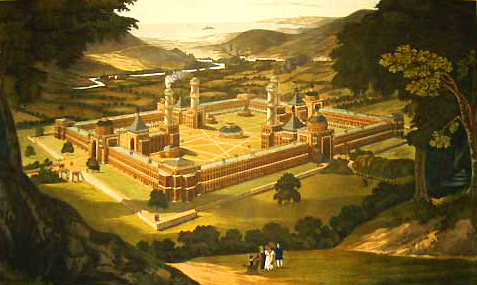Who wins a war in a perfect world, and who emerges as king? Is there war in your perfect world so you can always be the victor? And what would the soldiers loyal to your opponent say – in this perfect world? And what would their mothers say after the defeat with a flag in place of a child, living in your “Eutopia”?
In his article As You Like It: The Thin Line Between Legitimate Utopia and Compensatory Values, Ryan Farrar attempts to navigate the carefully constructed forms of utopia in Shakespeare’s As You Like It, differentiating between “utopia” and “eutopia.” A Utopia, he explains, is an “elusive nonplace” (Farrar 360) while a Eutopia is a “reaction to the undesirable present” coming from one’s “imagination of possible alternatives” (Vieira 7). The paradox creates a platform upon which Shakespeare challenges common 16th century perceptions, ultimately striking a balance between the desires of the individual in power and the commonwealth as a whole.
The relationship, although in a balance, is not equal whatsoever. Farrar notes that characters tend to act in the interest of themselves, creating what he calls the “language game” (Farrar 365). Throughout the play, characters use language to improve their own situation and create a tension between the wishes of the individual and that of other characters. These tensions, which result in physical duels in the play, reveal that Utopias are not a collective embodiment and that some visions will overtake others.
For example, as Duke Senior is cast into the forest and delivers his speech, Farrar points out the varying levels at work. While on the surface Duke Senior’s words reflect a utopian ideal of the mens’ situation, Farrar notes that they could be a “mere compensation for his loss” (Farrar 369). His men continue to refer to him as “my lord,” Farrar continues, suggesting a constant connection to the hierarchical structures that Duke Senior claims no longer exist. Just because he claims a habit or social structure to be dissolved doesn’t mean it truly goes away. Jacques, Farrar goes on to say, acknowledges the damage the presence of the men might actually do on the forest and its inhabitants, meaning that even if the men were truly free of their subordinate status and Duke Senior really had finally found his utopia, that utopia would still be dystopian for some other being.
This no utopia without dystopia sentiment, Farrar emphasizes, challenges the presentation of utopia but is avoided very cleverly by Shakespeare. Because at the end of the play Duke Senior is reinstated to his previous hierarchical position and Jacques and Frederick are left with somewhat open, self-determining futures, the play can appeal to all audiences. Those viewing the play from positions of privilege would be satisfied with the outcome of Duke Senior’s fate while those who relate to Jacques and Frederick would feel validated in their own desires: “the play appeals to early modern audiences of both high and low stature, in that the dual messages in the ending aim to satisfy their respective fantasies, as they like it, affirming both an order that rewards privilege and on that redefines it” (Farrar 381). In writing an ending with resolution that leaves space for future action, Shakespeare avoids the pitfall of alienating low stature by creating the possibility, or possibly the illusion, of a life outside a hierarchical world.
Relevant Resources
Ryan Farra, “As You Like It: The Thin Line Between Legitimate Utopia and Compensatory Vacation”. Utopian Studies, Vol. 25, No. 2 (2014), pp. 359-383
http://www.jstor.org/stable/10.5325/utopianstudies.25.2.0359
Fátima Vieira, “The Concept of Utopia,” in The Cambridge Companion to Utopia Literature, ed. Gregory Claeys (Cambridge: Cambridge University Press, 2010), 7.
https://commons.wikimedia.org/wiki/File%3ANew_Harmony_by_F._Bate_(View_of_a_Community%2C_as_proposed_by_Robert_Owen)_printed_1838.jpg

